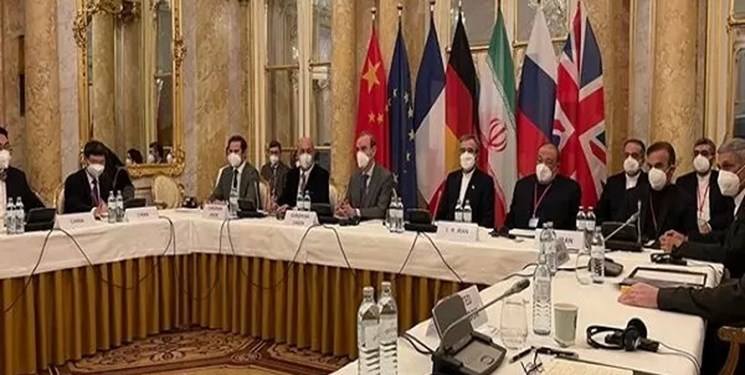Iran: No Direct Talks with US in Vienna

The Iranian foreign ministry rejected any direct talks with the US during negotiations between Tehran and the Group 4+1 (China, Russia, Britain and France plus Germany) in Vienna aimed at removal of sanctions against Iran.
The Iranian negotiation team has not had any direct talks with the US during the recent negotiations in Vienna, Foreign Ministry Spokesman Saeed Khatibzadeh told reporters in a press conference in Tehran on Monday.
“Some messages have been received through (EU Deputy Foreign Policy Chief) Enrique Mora in written and unwritten forms since the beginning of talks in Vienna on the issues of negotiation (and nothing more) and the answers have been given immediately,” the spokesman said.
“Despite its claims, the US has not yet made any tangible proposals or text to the G4+1”, Khatibzadeh said.
Iran makes any efforts to reach an agreement in the talks, he said, adding that if the other side offers a tangible text, an agreement can be reached in the shortest possible time.
He went on to say that the Iranian team just thinks about achieving results in the talks but they do not trust the US intentions, and unfortunately certain members of the European troika.
“We hope that we will reach a result if the other side removes the sanctions effectively and verifiably”, Khatibzadeh stressed.
His comments came after the US national security adviser claimed that he had sent a direct message to Tehran about Iran’s nuclear program.
Asked about relations between Iran and International Atomic Energy Agency (IAEA), Khatibzadeh said that as a member of the IAEA, Iran has always adhered to its undertakings under safeguards agreement and the Non-Proliferation Treaty (NPT).
He added that everything that Iran has done has been in accordance with the provisions of Iran’s international undertakings, and the Agency has been aware of all our actions.
The level, amount and quality of enrichment is in line with the needs of Iran’s peaceful nuclear program, and the Agency was aware of what Iran has done so far, Khatibzadeh noted, adding that Iran will keep the Agency informed of everything in the future.
Iran reached an agreement with the International Atomic Energy Agency to install the IAEA’s new cameras at TESA Karaj complex to remove misunderstandings about the country’s nuclear program amid the Vienna talks.
Iran voluntarily allowed the IAEA replace the damaged CCTV cameras at Karaj’s site with new cameras after reaching an agreement with the UN nuclear watchdog, Nournews, affiliated to Iran’s Supreme National Security Council (SNSC), had reported on Wednesday.
It added that Iran’s voluntary move was a bid to prevent the possible misunderstandings about the activities at the TESA Karaj brought up during IAEA Director General Rafael Grossi’s visits to Tehran in September and December.
Spokesman of the Atomic Energy Organization of Iran (AEOI) Behrouz Kamalvandi said on Sunday that the UN nuclear watchdog will reinstall cameras at TESA Karaj complex in the next few days after meeting Tehran’s conditions.
“Today, meetings between the technical and security officials of the AEOI and the inspectors and technicians related to the International Atomic Energy Agency (IAEA) cameras are being held at the AEOI building (in Tehran). In this regard, a morning meeting was held and the second round of the meeting started at 14:30 (local time) and talks are in progress,” Kamalvandi told FNA.
He noted that Iran was suspicions that the IAEA cameras might have been used by enemies for the recent sabotage act at Karaj facilities and therefore, after negotiations and writings with the IAEA, the Agency accepted to provide us with a sample camera to answer to the questions of the Iranian technical experts.
“Since the preconditions set by our country, including condemnation of the sabotage act in Karaj facilities (by the IAEA) and cooperation in the field of technical investigations about the possible role of the cameras in this incident has been accepted by the IAEA and are being implemented, the Agency’s cameras will be installed in the TESA complex in Karaj probably in the next few days,” Kamalvandi said.
He, meantime, said that the cameras’ data will not be provided to the Agency at all and will only be presented to the UN nuclear watchdog when the sanctions against Iran will be lifted and the Iranian parliament will authorize the move.







